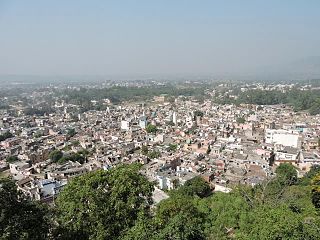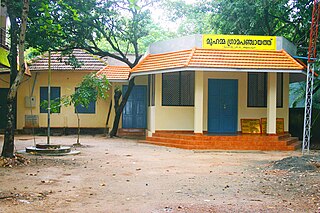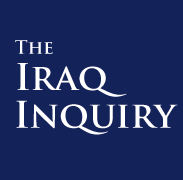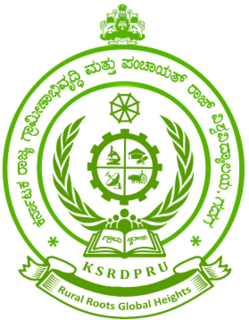Related Research Articles
A royal commission is a major ad-hoc formal public inquiry into a defined issue in some monarchies. They have been held in the United Kingdom, Australia, Canada, New Zealand, Norway, Malaysia, Mauritius and Saudi Arabia. A royal commission is similar in function to a commission of inquiry found in other countries such as Ireland, South Africa, and Hong Kong. It has considerable powers, generally greater even than those of a judge but restricted to the terms of reference of the commission. These powers include subpoenaing witnesses, taking evidence under oath and requesting documents.

The Commonwealth Bank of Australia (CBA), or CommBank, is an Australian multinational bank with businesses across New Zealand, Asia, the United States and the United Kingdom. It provides a variety of financial services including retail, business and institutional banking, funds management, superannuation, insurance, investment and broking services. The Commonwealth Bank is the largest Australian listed company on the Australian Securities Exchange as of August 2015 with brands including Bankwest, Colonial First State Investments, ASB Bank, Commonwealth Securities (CommSec) and Commonwealth Insurance (CommInsure).
A tribunal of inquiry is an official review of events or actions ordered by a government body. In many common law countries, such as the United Kingdom, Ireland, Australia and Canada, such a public inquiry differs from a royal commission in that a public inquiry accepts evidence and conducts its hearings in a more public forum and focuses on a more specific occurrence. Interested members of the public and organisations may not only make (written) evidential submissions as is the case with most inquiries, but also listen to oral evidence given by other parties.

The Australian Human Rights Commission is the national human rights institution of Australia, established in 1986 as the Human Rights and Equal Opportunity Commission (HREOC) and renamed in 2008. It is a statutory body funded by, but operating independently of, the Australian Government. It is responsible for investigating alleged infringements of Australia's anti-discrimination legislation in relation to federal agencies.

The Licence Raj or Permit Raj was the system of licences, regulations, and accompanying red tape, that hindered the set up and running of businesses in India between 1947 and 1990. Up to 80 government agencies had to be satisfied before private companies could produce something and, if granted, the government would regulate production. The term is a play on the "British Raj", which refers to the period of British rule in India. It was coined by Indian independence activist and statesman Chakravarti Rajagopalachari, who firmly opposed it for its potential for political corruption and economic stagnation, founding the Swatantra Party to oppose these practices.

Nalagarh is a city and a municipal committee, near the city of Solan in Solan district in the Indian state of Himachal Pradesh.

The Union Public Service Commission, commonly abbreviated as UPSC, is India's premier central recruitment agency for recruitment of all the Group 'A' officers under Government of India. It is responsible for appointments to and examinations for all of the Group 'A' posts of all the central government establishments which also includes all of the central public sector undertakings and all of the central autonomous bodies. While Department of Personnel and Training is the central personnel agency in India.
Central Vigilance Commission (CVC) is an apex Indian governmental body created in 1964 to address governmental corruption. In 2003, the Parliament enacted a law conferring statutory status on the CVC. It has the status of an autonomous body, free of control from any executive authority, charged with monitoring all vigilance activity under the Central Government of India, advising various authorities in central Government organizations in planning, executing, reviewing and reforming their vigilance work.
Christopher John Baker, Australian politician, is a member of the Liberal Party, a solicitor, and was a Member of the Western Australian Legislative Assembly (1996–2001) and City of Joondalup councillor (2001–2004). He is currently a City of Wanneroo Councillor.

Panchayati Raj is the system of local self-government of villages in rural India as opposed to urban and suburban municipalities.
The International Commission of Inquiry Into the 1932–1933 Famine in Ukraine was set up in 1984 and was initiated by the World Congress of Free Ukrainians to study and investigate the 1932-1933 Famine in Ukraine. Members of Commission selected and invited by World Congress of Free Ukrainians. None of them represent own country or country authority/institution and act as individual. Most of them are retired jurists, one of them died before Commission finish their investigations. The Commission was funded by donations from the worldwide Ukrainian diaspora.
Capital punishment is a legal penalty in North Korea. It is used for many offences such as grand theft, murder, rape, drug smuggling, treason, espionage, political dissidence, defection, piracy, consumption of media not approved by the government and proselytizing religious beliefs that contradict practiced Juche ideology. Current working knowledge of the topic depends heavily on verified accounts of defectors. Executions are mostly carried out by a firing squad, hanging or decapitation. Allegedly, executions take place in public, which, if true, makes North Korea one of the last four countries to still perform public executions, the other three being Iran, Saudi Arabia, and Somalia. The most common reason for executions in North Korea is viewing South Korean media.

The Iraq Inquiry was a British public inquiry into the nation's role in the Iraq War. The inquiry was announced in 2009 by Prime Minister Gordon Brown and published in 2016 with a public statement by Chilcot.
The Royal Commission into Institutional Responses to Child Sexual Abuse was a royal commission announced in November 2012 and established in 2013 by the Australian government pursuant to the Royal Commissions Act 1902 to inquire into and report upon responses by institutions to instances and allegations of child sexual abuse in Australia. The establishment of the commission followed revelations of child abusers being moved from place to place instead of their abuse and crimes being reported. There were also revelations that adults failed to try to stop further acts of child abuse. The commission examined the history of abuse in educational institutions, religious groups, sporting organisations, state institutions and youth organisations. The final report of the commission was made public on 15 December 2017.
The Goa Lokayukta is the ombudsman institution of the Indian state of Goa.The Lokayukta is an anti-corruption ombudsman existing in several states of India.

Rajya Sabha elections were held in India in 2015 to elect eight members of the Rajya Sabha, the upper house of the Indian Parliament. Five by-elections were also held. The regular elections were held to fill seats in the States of Jammu and Kashmir, Kerala, and the Union Territory of Pondicherry.

Rajya Sabha elections were held on three dates in 2014, to elect members of the Rajya Sabha, Indian Parliament's upper chamber. The elections were held in February, June, and November to elect respectively 55, 6, and 11 of its 245 members, from 16 of the States. They are held by an open ballot on a single transferable vote (STV) basis among State legislators. Being even-numbered, 2014 was a year in which about 30% of the State Legislature-elected 233-seat component of the body is elected.

Karnataka State Rural Development and Panchayat Raj University (KSRDPRU) is a state university located at Gadag district, Karnataka, India. It was established in 2016 by the Government of Karnataka under the Karnataka State Rural Development and Panchayat Raj University Act, 2016 to focus on education towards rural development.
References
- 1 2 "The Commissions of Inquiry Act, 1952". Vakilno1.com. Retrieved 7 August 2016.
- ↑ "Archived copy" (PDF). Archived from the original (PDF) on 21 December 2016. Retrieved 7 August 2016.
{{cite web}}: CS1 maint: archived copy as title (link) - ↑ "Siddha Raj Dhadda v. State of Rajasthan, AIR 1990 Raj 34".